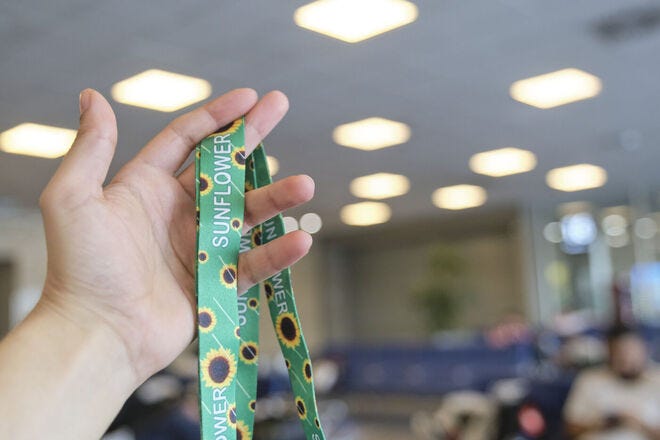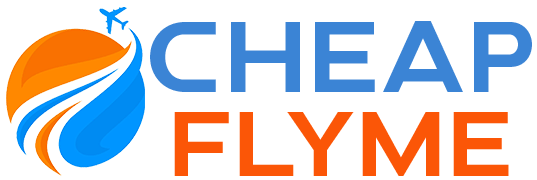From airlines to cruise lines, the travel industry responses to neurodiversity needs
Traveling can be stressful even under the best of circumstances. For neurodivergent travelers, schedule changes, new sights and sounds, airport delays, and unfamiliar foods can pose additional challenges.
People who are neurodivergent process the world around them differently and may have a harder time coping with these challenges. Types of neurodivergence include autism spectrum disorder, ADHD, learning disabilities, and other differences in brain function.
However, neurodivergence shouldn’t stop anyone from traveling. With the right support, neurodivergent travelers of any age can have a fantastic trip almost anywhere. Here are eight incredible programs designed to support neurodivergent individuals as they navigate through airports, hotels, resorts, and attractions.
TSA Cares
 Noise-canceling headphones, or ear defenders, can lessen sensory overwhelm at the airport — Photo courtesy of miodrag ignjatovic / Getty Images
Noise-canceling headphones, or ear defenders, can lessen sensory overwhelm at the airport — Photo courtesy of miodrag ignjatovic / Getty Images
TSA Cares provides support for neurodivergent travelers at Transportation Security Administration checkpoints at U.S. airports. Those with autism, ADHD, and other mental health concerns who may have difficulty getting through airport security can utilize TSA Cares. Travelers can call the TSA or fill out a form in advance of travel or request assistance on-site.
Travelers can give TSA advance notice of medication or equipment they will need to carry or any special accommodations they will need. TSA Cares support may look like skipping to the front of the line or allowing those on the autism spectrum to wear ear defenders, or noise-canceling headphones, through security.
Wings for All
Wings for All hosts “dress rehearsals” for travel at airports across the country. During Wings for All events, neurodivergent travelers and their families can go through the process of navigating the airport and boarding a plane before a trip. This helps neurodivergent travelers gain experience with everything from going through security to getting ready for takeoff and deplaning — all without ever leaving the ground. By participating in a Wings for All event, neurodivergent travelers can learn more about the different ways they will need to be supported on the day of travel.
Airline tickets with DPNA code
Neurodivergent travelers can request that their chosen airline add the Disabled Passenger with Intellectual or Developmental Disability Needing Assistance (DPNA) code to their plane tickets. This code alerts airline staff that the passenger requires additional assistance and may have a disability not visible to the eye.
Passengers with a DPNA-coded ticket may request special accommodations, such as priority boarding, delayed boarding, and guaranteed seating with a companion. Many airlines — such as United, Virgin Atlantic, JetBlue, Southwest, and Alaska Airlines — have programs that provide additional support as needed.
Vote Now: Best Cabin Crew (10Best Readers’ Choice Awards 2023)
Hidden Disabilities Sunflower
 You can signal with a sunflower — Photo courtesy of Carolina Jaramillo / Getty Images
You can signal with a sunflower — Photo courtesy of Carolina Jaramillo / Getty Images
The Hidden Disabilities Sunflower is a subtle symbol that allows neurodivergent individuals to discreetly let others know they have a hidden, or invisible, disability. The symbol has been used around the world for years and is gaining popularity in the United States.
Unlike those with physical disabilities, it may not be as obvious that those with autism, ADHD, Tourette syndrome, learning disabilities, mental health concerns, and other types of invisible disabilities need assistance. By choosing to wear a sunflower lanyard, hat, or iron-on patch, neurodivergent travelers can signal to others they need support.
Vote Now: Best Airline (10Best Readers’ Choice Awards 2023)
Because wearing a sunflower is voluntary and doesn’t require registering with an organization, those who participate needn’t worry about privacy policies or their health information being compromised.
KultureCity’s Sensory Inclusive Program
 Fidgets can help mitigate anxiety and nervous energy — Photo courtesy of Vitalii Puzankov / Getty Images
Fidgets can help mitigate anxiety and nervous energy — Photo courtesy of Vitalii Puzankov / Getty Images
While some venues host sensory-friendly events, KultureCity works with destinations, attractions, and points of interest to make them sensory-inclusive. Participating businesses may offer sensory bags that contain items like noise-canceling headphones and fidgets, which can help lessen sensory overload. Other places may offer quiet rooms.
KultureCity also trains staff at participating locations to support those who are on the autism spectrum or are neurodivergent in other ways.
Autism on the Seas
Autism on the Seas partners with Royal Caribbean — and sometimes other cruise lines, like Disney Cruise Line and Celebrity Cruises — to provide special accommodations to neurodivergent travelers. Support can take many forms, to include priority boarding, private muster sessions, reserved seating for shows, and onboard respite care.
Neurodivergent travelers can fill out this request form for a staff-assisted cruise. Assistance is dependent on availability.
Autism Double-Checked and Autism Travel
 Beaches Resorts offers activities with Julia, a nonverbal Sesame Street character with autism — Photo courtesy of Beaches Resorts
Beaches Resorts offers activities with Julia, a nonverbal Sesame Street character with autism — Photo courtesy of Beaches Resorts
Autism Double-Checked and Autism Travel through the International Board of Credentialing and Continuing Education Standards (IBCCES) certify that destinations throughout the world are autism-friendly. Staff at certified locations receive training on how to support their neurodivergent guests, such as accommodating food preferences and helping guests navigate through high-traffic spaces.
Support also may look like refraining from using strong-scented cleaning products or providing social stories for guests. A social story offers visual or written guidance that describes a range of social interactions to help neurodivergent individuals anticipate and adjust to new environments.
Some of the more popular certified locations include Great Wolf Lodge, Beaches Resorts, Nickelodeon Hotels & Resorts, and select Virgin Hotels.
Autism Nights
 Parents with kids on the autism spectrum can search for ‘autism-friendly’ hotels — Photo courtesy of Jamie Davis Smith
Parents with kids on the autism spectrum can search for ‘autism-friendly’ hotels — Photo courtesy of Jamie Davis Smith
Staying at a hotel can be an overwhelming experience for some neurodivergent individuals, including those on the autism spectrum. Autism Double-Checked forms partnerships with hotels around the country to host practice vacations. During Autism Nights, neurodivergent individuals and their families can stay at a local hotel at a discounted rate. This allows neurodivergent travelers to learn more about their support needs without going far or making a big investment.


